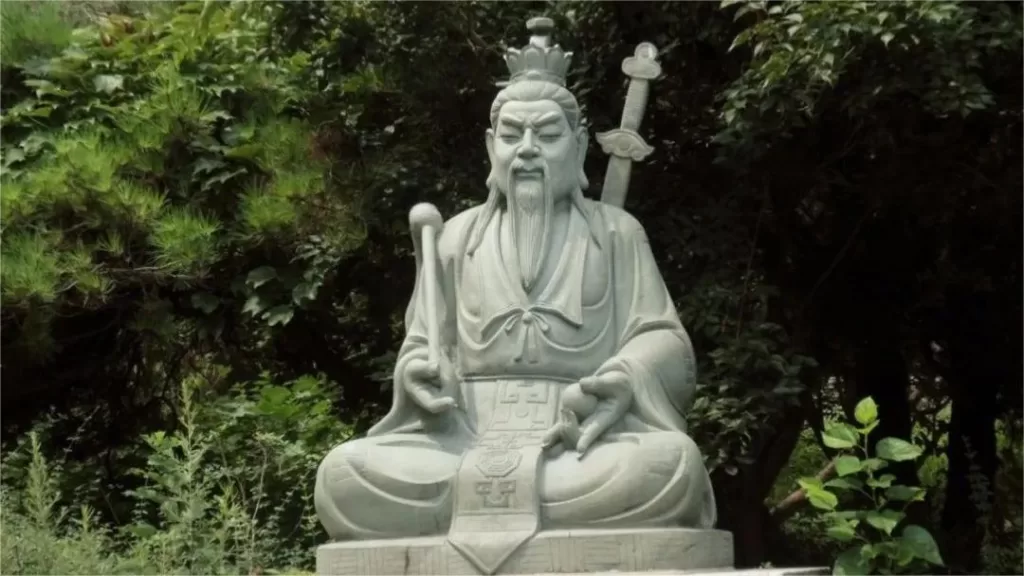Qiu Chuji (丘处机) (1148 – 1227), also known as Changchun Zi (Longevity Master), was born in 1148 in Qixia, which is now part of Shandong Province, China. Renowned as one of the “Seven Northern Immortals” of the Quanzhen Daoist tradition, he achieved global acclaim for his remarkable journey at the age of 74 to the western regions, where he persuaded Genghis Khan to cease the indiscriminate killing of people, earning him widespread admiration.
At the age of 19, Qiu Chuji entered the Daoist path, and a year later, he became a disciple of Wang Chongyang, a prominent Daoist master. Qiu Chuji displayed exceptional understanding of profound Daoist principles and became one of the “Seven Masters of Quanzhen” along with other disciples such as Ma Yu, Tan Chuduan, Liu Chuxuan, Wang Chuyi, Hao Datong, and Sun Buer.
After the passing of Wang Chongyang, Qiu Chuji dedicated six years to intense spiritual cultivation in a cave in Poxie, Shaanxi. Later, he secluded himself on Longmen Mountain, located in present-day Baoji, Shaanxi, where he pursued his spiritual goals for seven years. In 1190, during the first year of the Mingchang era, the Jin dynasty issued a decree suppressing Daoism, citing it as a source of confusion and disruption. In response, Qiu Chuji returned to Qixia in Shandong.
In 1214, during the autumn of the second year of the Zhenyou era, Qiu Chuji took on the task of pacifying rebellious forces led by Yang An’er in Shandong, successfully bringing peace to the region. Despite requests from both the Jin and Southern Song dynasties, he declined to heed their summons.
The turning point in Qiu Chuji’s life came when Genghis Khan, the founder of the Mongol Empire, heard of his wisdom and sent emissaries to invite him. In an arduous journey lasting two years, Qiu Chuji and 18 disciples traveled from Laizhou to the remote western regions, reaching the snowy mountains. When asked about governing the world, he advocated for a foundation of “reverence for heaven and love for the people.” Regarding longevity, he emphasized the importance of maintaining a pure heart and minimal desires. Qiu Chuji further advised that those seeking to unify the world should refrain from a love for killing.
Impressed by his wisdom, Genghis Khan treated Qiu Chuji with great respect, recognizing him as a sage. Qiu Chuji’s disciples, including Li Zhichang, later chronicled his journey in “The True Record of Changchun’s Journey to the West,” providing detailed insights into his life and teachings.
Upon returning to Yanjing (modern-day Beijing), Genghis Khan bestowed upon Qiu Chuji the authority to oversee Daoism throughout the empire, exempting Daoist institutions and practitioners from taxes and duties. Qiu Chuji took advantage of this favorable environment, spreading Daoist teachings through the establishment of eight congregations, including Pingdeng, Changchun, and Lingbao. The Quanzhen Dao experienced significant growth during this period.
In 1227, at the age of 80, Qiu Chuji passed away and was enshrined at the Baoxuan Hall in Baiyun Guan (White Cloud Temple) in Yanjing. Posthumously, he was honored as “Changchun Yandao Zhu Jiao Zhenren” by the Yuan dynasty. In the third year of the Dade era (1310), he was further elevated to “Changchun Quande Shenhua Mingying Zhenjun,” a title that emphasized his spiritual achievements.
Qiu Chuji’s Longmen school became one of the major branches of Quanzhen Dao, inheriting Wang Chongyang’s principles and advocating for a simple life and a pure heart. Among his numerous disciples, figures like Yin Zhiping, Li Zhichang, and Song Defang stood out as accomplished individuals. Yin Zhiping’s writings, including “The Record of the Northern Journey,” creatively expanded on Qiu Chuji’s three-in-one philosophy, making it one of the most important theoretical works of Quanzhen Dao in the Yuan dynasty.

